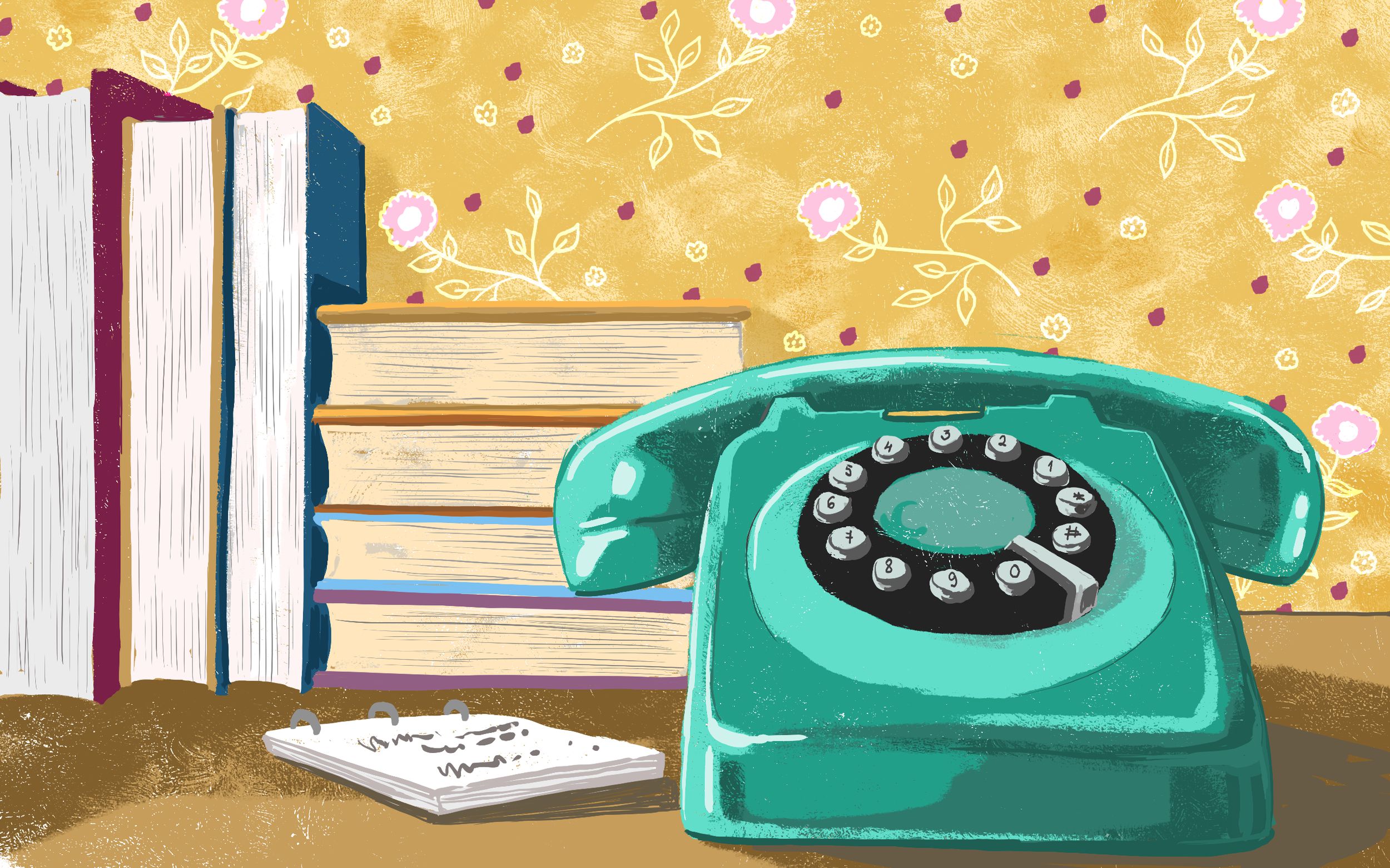
Coronavirus Etiquette: How to Decline Invitations Politely
As COVID-19 continues to linger much longer than any of us probably anticipated, you may find yourself facing down at least a few socially awkward positions.

As COVID-19 continues to linger much longer than any of us probably anticipated, you may find yourself facing down at least a few socially awkward positions.
Maybe your friends or family are trying to get back to life as normal, but you aren’t quite comfortable attending large gatherings—even if social distancing is supposedly in place.
So what’s a polite person to do? What’s the proper protocol for declining invitations during COVID? Is there such thing as “coronavirus etiquette”?
The short answer is, unfortunately, no. We’re all just adapting and making the best of a difficult situation as it goes on, and there really are no rules. But still, there are some tips you can use to decline invitations graciously, politely, and firmly—whether due to COVID itself or really any reason at all.
You might be wondering why on earth anyone needs to bother with “proper etiquette” at a time like this. If so, a little mind-shift might help! Instead of viewing the whole thing as “right versus wrong” or “proper versus improper,” try to think of it as “kind and gracious versus…not.”
In challenging and anxiety-inducing times like these, we could all use an extra scoop of kindness, support, and understanding—especially when it comes to the already-awkward situation of turning down an invitation. So let’s dive right into the best ways to send your COVID regrets.
We all (well, most of us!) hate disappointing our friends and family, which can lead to a serious case of procrastination when it comes time to decline an invitation. But the longer you wait to send your reply, the worse you’ll feel and the worse off the inviter will be.
After all, the host is having to plan their event in a time when many event and catering businesses aren’t operating at full capacity. A tardy invitation response may put the host in a position of having to pay for attendees who don’t end up coming—adding another layer of stress during what’s already a financially unstable year for many.
So the first tip? Swallow that pill of discomfort and decline the invitation as soon as you’ve decided that you will not be attending. Don’t wait a day longer than you have to.
Different etiquette gurus have different opinions on whether or not you need to provide a reason for declining an invitation. You may have heard the saying, “No is a complete sentence”—but even the somewhat politer version of “No-thank-you is a complete sentence” can feel a bit rude.
Ultimately, it’s up to you whether you want to provide an explanation and, if so, how much you want to share. Maybe you’re worried about catching COVID, maybe you feel that it’s your responsibility to reduce the overall transmission rate to protect more vulnerable people, or maybe you’re recovering from COVID yourself.
No matter the reason, here are some possible ways to explain your declined invitation—or not:
The bottom line is that you don’t owe anyone an explanation—but you can certainly provide one if you want to. You know the inviter best, and you know your relationship. Just be sure to think through your response carefully before typing something on the fly.
Extra Tip: Keep in mind that giving too specific of an explanation may open up room for debate with the host. For instance, you might say that you’re only attending gatherings outdoors…and then the host counters with, “Well, part of it is outdoors!” If this sounds like your relationship dynamic, consider giving less explanation rather than more.
If you feel that it’s your responsibility to share your COVID-related concerns with the event host, you are certainly free to do so! The host may appreciate your concern and genuinely take your point of view into consideration…or they may not. It’s difficult to say, even if you know the person well.
If you do decide to share your concerns when declining the invitation, try to do so clearly, objectively, and without judgement. Avoid overly emotional words or terms that may come across as accusative. For instance:
Remember—if the host is already in the process of inviting you to the event, they probably are going to host it whether you agree with their decision or not. You can definitely express your opinion, but don’t hold your breath for a change of heart.
You might think that your second-cousin-once-removed is being a selfish jerk who should absolutely not be having a 30th birthday bash during a global pandemic…but she doesn’t necessarily need to know your full, unfiltered thoughts.
It’s always better to err on the side of kindness and assume that everyone is doing the best they can during a very unpredictable and stressful time. Maybe this event has been planned for years, or maybe it’s an unexpected funeral and the family wants closure.
Hosting an event may not be what you ever would do, but it never hurts to err on the side of kindness—not rightness—when declining an invitation during COVID.
No matter how much explanation you provide or not, you need to realize that declining an invitation might hurt the person’s feelings. COVID or not, there is simply no way to turn down an invitation without the potential for a little sting.
It’s best to understand that there might be tension or upset feelings and that there’s nothing you can do about it. As every therapist will jump to tell you, you aren’t responsible for how someone reacts to your choices—and you aren’t responsible for convincing anyone that you’re making the right choice for you.
A good way to remove some of the potential hurt of a turned-down invitation is to suggest alternative activities, dates, or times. Doing so will show the host that you’re genuinely interested in sharing an experience and would love to stay connected in a way that feels safer or more comfortable to you.
Depending on the event, you could suggest:
Extra Tip: Instead of a general raincheck, you could also provide a specific alternative to be held at a later date, after the pandemic has cleared up. Maybe you suggest going to your favorite bar for drinks, having a “better late than never” birthday party, or a taking a weekend away to celebrate a big graduation. Offering a specific activity will show that you aren’t just being polite and that you really do intend to celebrate in another way.
Depending on your relationship with the host, you might be faced with some pressure to just attend anyway, even after you’ve declined the invitation due to COVID concerns. No matter what, be firm in your choice and give yourself permission to keep saying no.
You do not have to continue to explain yourself; it’s perfectly okay to continue saying nothing more than, “thank you but no.”
If you can’t attend the event but either genuinely wish you could or just want to be a good friend, put a reminder in your phone or planner to contact the host again later! You can follow up with them about how the event went and reiterate that you wish you could have attended.
Thoughtful gestures like these can go a long way toward keeping your relationships strong, even when you aren’t comfortable attending events in person.
If you’re in a financial place to do so, you can always temper the sting of your invitation turn-down by sending a small gift in lieu of your physical presence. Choose something from the gift registry if there is one, or send your own!
Extra Tip: Instead of ordering from a big-box retailer like Amazon, you could use the opportunity to support a local business—many of whom are struggling in the current times. Local bakeries, flower shops, and restaurants will often arrange for delivery if you ask. You could also look for small makers or craftspeople on online stores like Etsy.
If you’re having trouble coming up with the right words to send your COVID regrets, check out some of our example phrases below! You can even grab the phrases you like best, tailor them to your specific situation, and send a card directly from Foxdog.
Thank you for your wedding invitation! Unfortunately, my family is adhering to social distancing guidelines, and we just aren’t comfortable attending a large gathering at this time. You know how much we wish we could be there, and we’re so sorry that your big day has been impacted by this whole mess. Please know that we’re sending lots of love for your wedding day and will be attending via your livestream.
You KNOW I’d love to party again with you this year, but I’ve caught a case of the COVID worries. (Better than catching COVID, I guess?) Have an extra order of beer and nachos for me—and then another one later this year when I take you out for a birthday raincheck. Promise!
As much as it upsets me to send you this message, I won’t be able to attend Ava’s second birthday party this year. If the world were in a more normal place, you know I’d be there in a heartbeat! If you have time after the party, I’d love to call you and hear how it went. P.S. Please be checking your mail for a little something for Ava from us.
As much as I want to spend the winter holidays with you like we always do, I don’t feel safe flying across the country with everything that’s going on in the world. Can we arrange for a video chat? I’d love to share our Christmas meal from afar.
We’re so sorry for your loss. It’s already so hard to experience a death in the family, and we know that this whole COVID mess is making everything so much more complicated. We can’t attend the funeral service in person, but we’d be happy to send flowers, arrange for homemade meal delivery, or pitch in for some movies and games to keep the kids busy while you try to sort everything out. Sending lots of love.
We’re so proud of you for this big milestone and wish we could come together to celebrate. Since we won’t be able to attend your graduation dinner, we hope you’ll enjoy this gift card and treat yourself to something nice. You deserve it!
Since my family is observing social distancing, I won’t be able to attend the office get-together this year. I do understand that you’ve put a lot of work into planning it and regret that I cannot participate. Looking forward to next year’s!
I wish that I felt more comfortable attending your party! I know this event means a lot to you, but I just don’t feel safe eating and drinking around so many people while COVID continues to spread. To be honest, I’m worried about your health and safety, too, but of course it’s your decision. Just please take care and know that I would absolutely be there if I could!
I know that you’ll be disappointed to hear this, but I have to bail on our plans to attend that concert. Even though the arena is enforcing some social distancing rules, I don’t feel comfortable attending and do not want to put my family at risk if I don’t have to. Let’s raincheck for when life gets back to “normal.”
Thank you for thinking of me, but I won’t be able to attend. If you’re planning to have any virtual options like livestreaming or video chat, please send me the link! I would love to participate from home. All the best!
Wondering how to logistically decline the event invitation? It’s always best to send your official regrets via the method specified by the host. For example, maybe they’ve sent an RSVP postcard for you to send back by mail, or maybe they’re asking guests to send responses by email or through a particular app. Make it easier for the host by always adhering to their RSVP request.
Although your primary response should be by the host’s preferred method, you can always communicate in other ways, too! Especially if you’re concerned about hurting the host’s feelings, sending a follow-up message outside of the formal decline can be a great way to show that you do care and you aren’t trying to dodge them.








